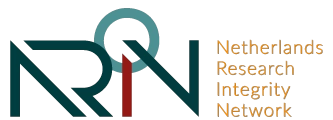FAQ
Frequently Asked Questions
What is the benefit of a research integrity network?
Until recently, in most research institutes only a few staff members were dealing with RI and RCR education, policy formulation or handling allegations of RM. These colleagues never met and consequently missed the opportunity to share experiences and learn from each other. That led to the idea that a network was needed. Currently the growing community is close and collaborates a lot. We believe that having a research integrity network within a country or in a region (like the Asian-Pacific Research Integrity Network and the African Research Integrity Network) is a very good idea and we warmly recommended it to others active in the field of RI and RCR.
Is every university in the Netherlands a part of the NRIN?
NRIN is a network of interested academic professionals from within the Netherlands and abroad. These individuals mainly come from universities and university medical centers, but increasingly also staff of funding agencies and universities of applied science join the network. Until 2019 the funding of NRIN came from The Netherlands Organisation for Health Research and Development, The Netherlands Organisation for Scientific Research and The Association of Universities in the Netherlands. Currently, NRIN is funded by the Dutch universities individually, and from 2021 onwards, NRIN will receive funding from the The Association of Universities of Applied Sciences.
Who is funding NRIN?
Between 2014-2019 NRIN was funded by ZonMw, NWO en VSNU. From 2020-2024, the network will be funded by all the Dutch universities, associated in the Association of Universities in the Netherlands (VSNU). Additionally, from 2021 onwards NRIN will also be funded by the Association of Universities of Applied Sciences (Vereniging Hogescholen).
How often do the people involved with NRIN meet and what do they discuss?
We organize 2-4 symposia per year that deal with topics like RCR education, research on RI, codes of conduct for RI, and procedures for handling allegations and protecting whistle blowers. These events are open for public and may be held in co-organisation with other parties. In the 2-4 closed meetings we organize annually confidential counsellors, chairs and members of committees treating allegations, or RCR policy advisors can exchange experiences and discuss dilemmas. In 2018 NRIN has organized consultation meetings with the different stakeholders on drafts of the revised Netherlands Code of Conduct for Research Integrity.
What's the next step in Research Integrity?
It’s important that multiple stakeholders (researchers, research institutes, funding agencies and research journals) keep collaborating in the prevention of RM and QRP and in fostering RCR. We think there is still a lot room for improvement regarding prevention and fostering. First and foremost we need more research on research integrity to enable evidence-based interventions. Apart from this, we need more research on research integrity, to get a better understanding about the correlation between conduct, assessment, funding and rewarding of science on one hand, and RM and QRP on the other hand.
I would like to have more information on Research Integrity and Responsible Conduct in Research, what should I do?
Please do not hesitate to contact us. We’ll try our best to answer any questions and normally reply within two working days.
